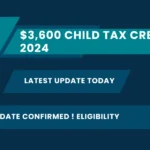In this article, we will explore the future of Supplemental Security Income (SSI) benefits and whether they will continue into 2024. SSI is a financial assistance program within the social security system designed to support low-income individuals with limited resources.
Are SSI Benefits Ending in 2024?
This federal program, managed by the Social Security Administration, provides enhanced financial support to eligible individuals. SSI benefits are typically received by those who also qualify for social security, helping them meet their cost of living needs. To learn more about whether SSI benefits will end in 2024, including payment dates and additional information, please read on.
Over 71 million Americans receive supplemental security income benefits through the Social Security Administration. Starting in 2024, SSI payments will increase by $50 per month. Additionally, approximately 66 million social security beneficiaries will experience a cost of living adjustment of about 3.2%. The 2024 SSI benefits aim to assist low-income households in managing the challenges of rising inflation and living expenses.
These benefits provide monthly assistance to recipients who contribute to federal social security taxes. SSI benefits are determined by the recipient’s income and contributions, funded by personal income taxes and other tax revenues from the U.S. Treasury. Recipients of Supplemental Security Income also receive support for certain medical expenses, prescription medications, and additional healthcare costs.
The SSI program offers financial assistance to individuals aged 65 and older, as well as disabled adults. For single beneficiaries, the monthly support amounts to $914, while married couples or those in common-law partnerships receive $1,371 per month, with benefits varying based on individual circumstances. SSI funding comes from two primary sources: payroll taxes and general tax revenue, which are adjusted according to the cost of living, including a 3.2% increase for 2024.
Supplemental income is available to eligible recipients, including those aged 65 and older, individuals with disabilities, and those with limited income from pensions and wages. To qualify for these benefits, recipients must be U.S. residents living in one of the 50 states. This support is crucial for helping beneficiaries cope with rising living costs and inflation.
SSI benefits cover essential needs, such as food and shelter. The income received from SSI is deducted from the recipient’s gross income, which is considered when determining countable income. Starting in 2024, SSI benefits will continue to be disbursed. However, their future beyond this year will largely depend on inflation and the cost of living adjustments.
Future of Supplemental Security Income in the US
In 2024, Supplemental Security Income (SSI) benefits will not end; they will continue to provide federal assistance with an increase of 7.65%. The future of SSI in the U.S. will be influenced by inflation rates. Monthly SSI payments are scheduled for distribution on December 29, 2023, for January, as well as on February 1, March 1, April 1, and subsequent months. Payments are typically made on the first of each month.
The future of Supplemental Security Income relies on the timely distribution of SSI checks. Beneficiaries receiving SSI or social security assistance can expect payments to be made between one and three days each month.
The decision regarding the potential end of SSI benefits will be announced before the close of 2024. These benefits are available to qualified individuals who have worked and contributed for over ten years, with payments determined by the individual and their spouse’s current monthly benefits. Additionally, beneficiaries may receive extra support for children under 18 who have disabilities.
The continuation of SSI benefits will be influenced by inflation rates, as these payments are tax-free and funded by the U.S. Treasury. The benefit amount is allocated to recipients based on their contributions to the SSI program, reflecting their annual gross income while employed. This monthly assistance is essential for low-income individuals and those with disabilities, helping them cover living costs and other expenses.




